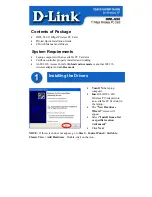
— 36 —
A proper setting for
Master Drive (dB):
will probably be some-
where near the center of its range. Indeed, the factory-default
setting is 15dB, although individual Factory Presets will have
varying values for specific formats. Generally, a lower setting is
called for with classical, jazz and ‘easy-listening’ formats, and a
more aggressive setting for pop/rock.
Spectral
Loading™
The greatest audible effect of multiband processing is realized
when each band operates independently of the others. Of
course there is some duplicity at the band crossover frequen-
cies, but fully independent operation of each band will increase
‘spectral density.’ This means that it will tend to maximize the
energy at all frequencies, even if the incoming program materi-
al has a ‘peaky’ (varied) spectral profile. We have named this
effect ‘Spectral Loading.’
A good way to understand this is to imagine the input program
profile as seen on a real-time audio analyzer, or RTA, which
displays audio energy at specific frequency intervals across the
audible spectrum. Solo voices and instruments will have high
energy levels at their fundamental frequencies, whereas a band
or orchestra will have a broader spectral profile with energy
spread over a wide range of frequencies.
The Spectral Loading process
decreases
energy at frequencies
where it is the greatest, thus actually
increasing
program com-
ponents with lower energy at other frequencies. As displayed
on the RTA, the shape of the audio spectrum will be flatter and
the sound of the program will appear ‘busier.’ Spectral Loading
almost always imparts additional ‘brightness’ to the sound, as
higher frequencies are typically lower in total energy and will
be brought up.
Band
Coupling
One element of control over loudness and the sonic signature
of a station is to establish the degree to which multiband pro-
cessing is used. Fully independent operation of the bands will
create an artificially busy and bright sound that may not reflect
the desired signature goal.
The DAVID IV allows the user to proportionally ‘link’ the five
bands, allowing the unit to serve as a compressor that’s effec-
tively variable between five bands and one band.
But full linking does not really turn the DAVID IV into a true,
single-band processor. Each band is still able to respond inde-
pendently to peaks in program energy within that band’s range.
When bands are coupled the amount of
average
compression in
bands 2, 3 and 4 is integrated over time and used as a ‘plat-
form’ release value for all five bands. Band 1 is excluded in the
integration, as the high bass energy in modern music must not
be allowed to reduce the gain of other bands, lest a kick drum
‘punch holes’ in the audio.
The
Coupling (Linked-Indep):
slider on the
Compressor
submenu
gives eleven levels of band coupling, from zero (fully linked) to















































